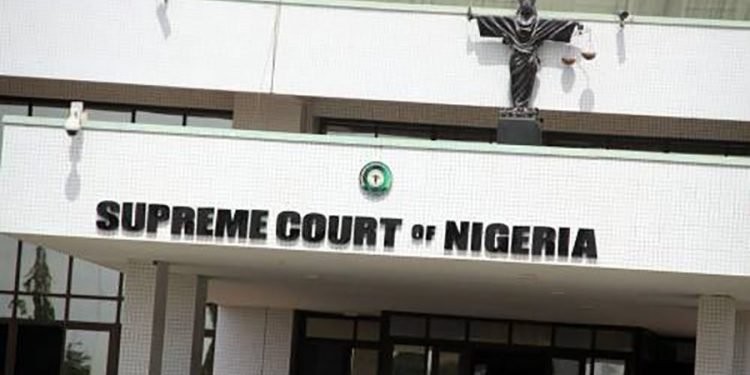Supreme Court verdict on Imo election endorsement of fraud – PDP

The Peoples Democratic Party (PDP) has said that the verdict of the Supreme Court on the review of its judgment on the Imo state governorship election was a disconcerting endorsement of electoral fraud.
In a statement by its spokesman, Kola Ologbondiyan, hours after the judgment was read on Tuesday, the PDP said the judgment has placed a huge burden on the apex court and the Lord Justices.
The apex court, in a majority verdict of six of the seven-man panel, had affirmed the sacking of Mr. Emeka Ihedioha of the PDP and his replacement by election of Senator Hope Uzodinma of the All Progressives Congress (APC).
The statement said, “Our party abides completely by every word of the judgment of Justice Nweze as treated facts, which are truly sacred.
“Justice Nweze’s pronouncement, which went straight into the substance of our application, represents a universal view about the travesty of justice that occurred in the Imo state governorship election judgment.
“It is indeed unfortunate that the Supreme Court had the wholesome opportunity to redeem itself and correct its errors, but chose to hide behind a technicality to justify and endorse an electoral fraud.
“What Nigerians expected of the Supreme Court, since the error in its earlier judgment had been fully established, was to summon the courage to affirm its infallibility by correcting the errors and handing over victory to the rightful winner. Sadly, it failed to do so.
“As a party, we hold that on this judgment, all election stakeholders must rally to create remedies for this pathetic situation created by the Supreme Court in the Imo governorship election before our entire electoral process becomes vanquished.
“This judgment will continue to haunt the Supreme Court. It has created a burden of precedence and fallibility on the Court.
“More distressing is the fact that the judgment has heavily detracted from the confidence Nigerians and the international community reposed on the Supreme Court and our entire jurisprudence”

